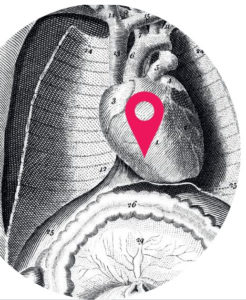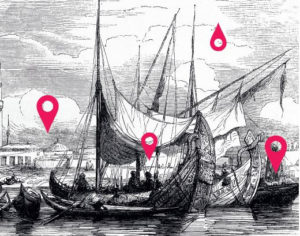There is a place that is a fixed point in nearly every person’s life: their Heimat, a German word that roughly translates as “home” or “homeland”, but has connotations specific to German culture and society in ways that mean it has no exact equivalent in English.
Heimat is about more than Germany’s typical wooden lattice fences or kitschy garden gnomes.
The concept of Heimat has not just social and cultural dimensions but temporal and emotional ones as well. Heimat gives people a sense of orientation – and it is en vogue again in Germany. But why? Driving over the Elbe bridges in the heart of Hamburg; a glimpse of the Cologne Cathedral or the snow-covered Alps on the horizon; the smell of Mum’s warm apple pie or tall pines swaying in the wind – those are just a few of the feelings that let people know they are home again, back in their Heimat. Heimat is about more than Germany’s typical wooden lattice fences or kitschy garden gnomes: 92 per cent of Germans today have a positive association with the word. But what is with all this Heimat hype these past few years, anyway? Why have we all gone back to buying fruit and vegetables that are regionally sourced? Why are German dialects suddenly so sexy again? And why do we now have our own Heimat minister?
 Heimat – everyone’s personal safe haven.
Heimat – everyone’s personal safe haven.
There are several reasons behind the German Heimat renaissance. On the one hand, we have more freedoms than ever before. There are fewer rules and boundaries for the individual. Established conventions may seem limiting. But at the same time they were like guard rails that gave people a sense of orientation. On the one hand it is good that we have tossed them aside, but on the other it is a source of stress and uncertainty for people. The main reason for the Heimat renaisssance as a point of orientation and safe haven in life may be the profound transformation society is undergoing in our time. With globalisation, the financial crisis, digitalisation and climate change, we are living through a time of upheaval that calls everything that has been up to now –all we have achieved and all that has kept us safe – into question. When the world around us becomes more and more indifferent and fast-paced, we inevitably begin to grapple with questions of our identity, finding our place in the world and defining where and how we belong. In other words, we return to our roots.
Heimat is retro – in two ways.
It has been like this before. The word Heimat first became popular in the 19th century, when daily life was radically transformed by technology and industrialisation, urbanisation, mass migration and waves of outward emigration that changed things so drastically that people felt alienated in their own country. Social scientist Ralf Dahrendorf describes the phenomenon as follows, and though his statement was made in reference to globalisation, the quote could just as easily be applied to the 19th century: “While certain economic activites require more and more space to unfold and are becoming detached from reality, people are searching for smaller and smaller spaces in which they can feel at home and develop a sense of belonging.”
 The next big thing – the new love of Heimat
The next big thing – the new love of Heimat
A lot of people in this situation are searching for a sense of emotional security. The bigger the changes, the more pronounced this deep-seated need becomes. In the face of insecurity and instability, we return to the familiar: something that once provided a sense of orientation. We look for an anchor, we reflect on our roots and find stability in our Heimat. Heimat is the small space in which we feel at home and as though we belong: a place we know we can always return to. It is the alternative to a threatening, globalised, mechanised world that has been robbed of reliability.
What is Heimat?
If you ask German people what they associate with Heimat, most people say family (45%), followed by the place they live (16%), the place they were born (15%) and Germany (14%). Only 6% name their friends and just 4% have no association with the term. That goes to show that Heimat does not even have to be associated with a place: home is where the heart is. What Heimat ultimately means to us is something we only discover when we leave it. The further away we go, the more we begin to miss it. That’s when a German’s “Heimatliebe” (a love of home) becomes “Heimweh” (homesickness). So it is good we have a safe haven to return to.
Changes No. 7
Please click on the picture to open the Changes No. 7.
Download
Download the latest Changes as PDF.
Subscribe
Subscribe for the print edition of our customer magazine “Changes”.



